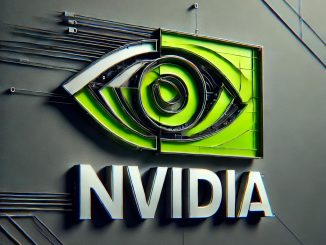
The U.S. Department of Commerce has recently asked Nvidia (NVDA) to investigate how its high-end AI chips have ended up in China, despite stringent export restrictions. According to Reuters, citing The Information, the request follows reports that Nvidia’s products — particularly those embedded in servers from Super Micro Computer (SMCI) and Dell Technologies (DELL) — have been reaching Chinese buyers through covert channels.
According to The Information, Nvidia has been proactive by instructing major distributors like Super Micro and Dell to perform spot checks on their customer base in Southeast Asia. However, these efforts seem to have been circumvented by smugglers. Sources close to the matter told the publication that some individuals involved in smuggling have managed to bypass these inspections with techniques such as duplicating serial numbers on servers or even altering them within the operating system of the hardware.
This situation underscores the challenges faced by U.S. tech companies in enforcing export controls. The methods used by smugglers highlight a sophisticated understanding of both the technology and the regulatory loopholes they can exploit. Nvidia has publicly emphasized its commitment to compliance, stating, “We insist that our customers and partners strictly adhere to all export control restrictions. Any unauthorized deviation of previously-owned products, including any grey market resales, would be a burden on our business, not a benefit.” This statement reflects the company’s stance but also the complexities of managing supply chains in an era of heightened geopolitical tensions.
The broader context of this issue is set by the Biden administration’s intensifying efforts to curb technological transfers to China, especially concerning technologies with potential military applications. The administration expanded restrictions on AI chip sales to China last year, aiming to slow down China’s advancements in areas like artificial intelligence and supercomputing. Despite these measures, Reuters reported earlier in 2024 that Chinese institutions were still acquiring Nvidia’s high-end chips through resellers, indicating the resilience and adaptability of the grey market.
Further complicating the scenario, the U.S. recently expanded its semiconductor export controls to include 140 companies, with a focus on chip equipment makers. This move is part of a larger strategy to maintain technological superiority and prevent the militarization of advanced tech. However, the persistence of smuggling networks suggests that these controls face significant enforcement challenges, particularly in regions with less stringent oversight or those that might see economic benefits from such trade.
The involvement of Super Micro and Dell in this narrative is crucial, as both companies are significant players in the server market. Their products, which house Nvidia’s chips, are pivotal in data centers worldwide, making them a focal point for both commerce and compliance. Reuters stated that neither Nvidia nor the U.S. Department of Commerce immediately commented on the developments, leaving many questions unanswered about the extent of the issue and what actions may be taken to address these loopholes.
This situation illustrates the ongoing tech war between the U.S. and China, where control over cutting-edge technology is not just about economic dominance but also about national security and global power dynamics. The effectiveness of U.S. export controls will continue to be tested by the ingenuity of those seeking to bypass them, while companies like Nvidia, Super Micro, and Dell must navigate these turbulent waters, balancing compliance with market demands.
Price Action: Shares of Nvidia are currently trading at $131.74, representing an increase of $2.83 or 2.20% for the day. The stock price has fluctuated throughout the session, with a daily low of $129.55 and a daily high of $134.03.
- Bulenox: Get 45% to 91% OFF ... Use Discount Code: UNO
- Risk Our Money Not Yours | Get 50% to 90% OFF ... Use Discount Code: MMBVBKSM
Disclaimer: This page contains affiliate links. If you choose to make a purchase after clicking a link, we may receive a commission at no additional cost to you. Thank you for your support!





Leave a Reply